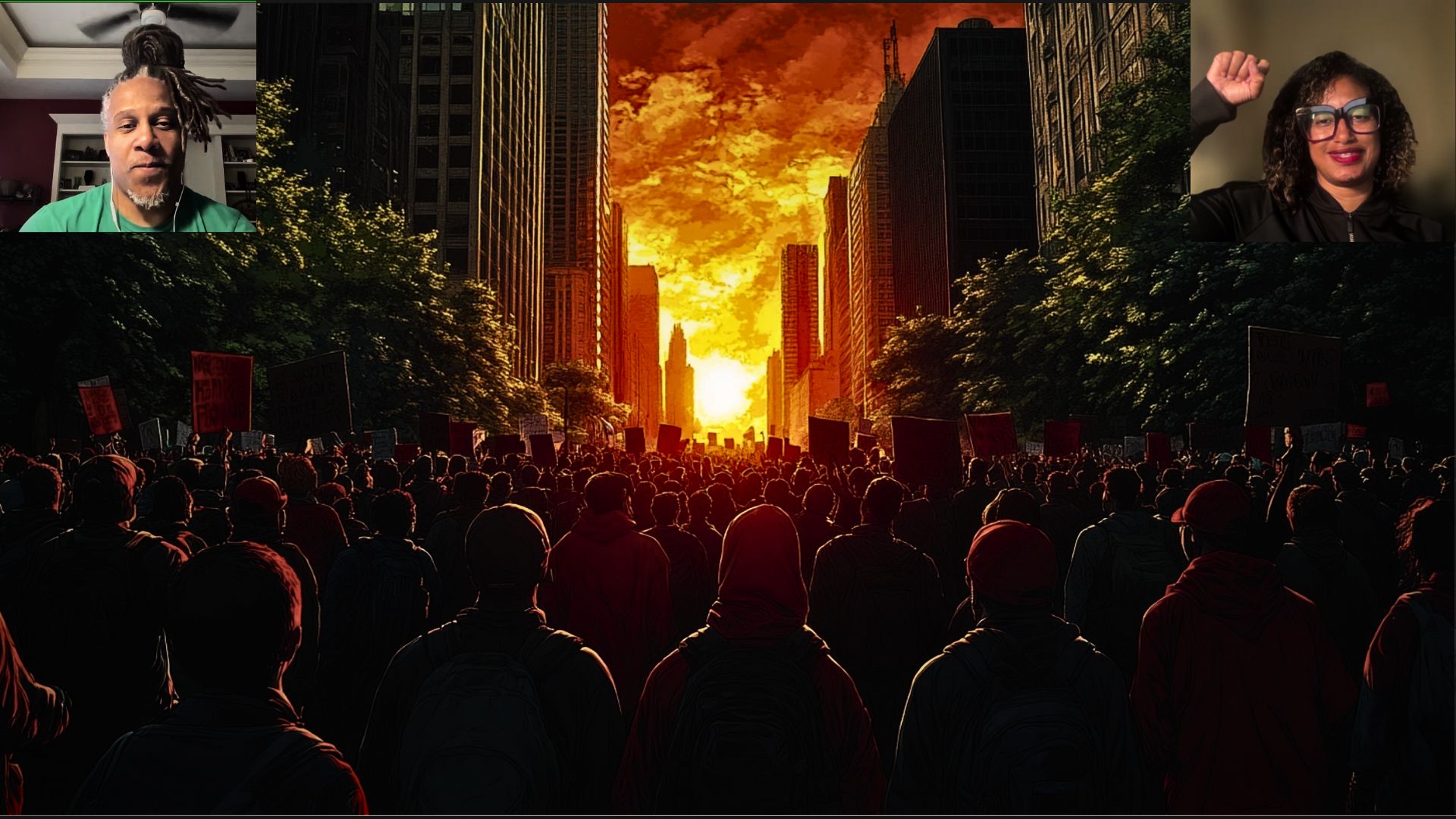Introduction to the Discussion
In a compelling episode of Hard Knock Radio, host Davey D connects with Chicago activists David Stovall and LaKeisha Gray-Sewell to delve into the implications of the Democratic National Convention (DNC) being held in Chicago. Davey D sets the stage by recalling the significant historical protests of 1968 in Chicago, posing questions about the potential challenges today’s activists might face.
Grassroots Organizing in Chicago: David Stovall’s Insights
David Stovall discusses the robust grassroots organizing permeating Chicago’s activist scene. He sheds light on how local initiatives, particularly in education and housing, have made substantial progress despite systemic obstacles. Stovall emphasizes the city’s achievements, such as the ‘Treatment, Not Trauma’ campaigns, stating, “Chicago has gained quite a bit of ground in terms of looking at things like treatment, not trauma campaigns, bringing Chicago home.”
Strategic Selection of Chicago for the DNC: LaKeisha Gray-Sewell’s Perspective
LaKeisha Gray-Sewell elaborates on the strategic reasons behind selecting Chicago for the DNC, tying it to broader capitalist interests and the city’s historical activism role. She criticizes the superficial engagement of the political establishment with communities, emphasizing that true change requires consistent effort beyond election cycles. Gray-Sewell highlights the influence of economic interests: “The battleground is not in any part of the country so much as it is invested in capitalistic interests.”
Challenges Faced by Local Leaders and Activists
Both guests express their frustrations with the current political leadership’s failure to support grassroots movements effectively. Stovall points out the bureaucratic challenges that hinder such movements, highlighting the disconnect between campaign promises and governance realities. “What has happened is a disconnect between the people who have put him on and now the challenges of running a city,” he comments on the difficulties faced by progressive leaders.
Global Implications and Civil Liberties Concerns
The discussion also explores the potential global implications of the DNC and concerns about increased policing and surveillance. Stovall and Gray-Sewell argue that such measures disproportionately affect marginalized communities and raise serious civil liberties issues.
Call for Sustained Political Engagement
The conversation concludes with a call to shift from spectacle-driven activism to sustained community organizing and policy change. Both activists urge listeners to engage more critically and actively in the political process, emphasizing the importance of continual involvement in activism beyond political cycles.
David Stovall reiterated the importance of persistent local action, stating, “It’s about grounding our efforts in the community and ensuring that our organizing is responsive to the people’s needs, not just during election cycles but all the time.”
Historical Context: The Role of Ida B. Wells in Political Activism
Adding to the historical significance of the DNC’s location, the role of Ida B. Wells in political activism is noteworthy. Wells was a pioneering African American journalist and activist who fiercely advocated for civil rights and women’s suffrage in the late 19th and early 20th centuries. Hosting the DNC in Chicago, a city with a rich history of political activism partly shaped by figures like Wells, underscores the deep historical roots of political struggle and the ongoing relevance of these battles in modern contexts.
LaKeisha Gray-Sewell summed up the discussion with a powerful call to action: “We need to move beyond being reactive and start building proactive strategies that address the root causes of our struggles. We must organize with a vision that transcends immediate political cycles and aims for long-term systemic change.” Her words served as a poignant reminder of the ongoing need for deep, meaningful engagement in the fight for justice and equality.
This detailed analysis on Hard Knock Radio not only highlights the ongoing issues facing Chicago but also serves as a robust call to action for more profound and systematic engagement in the political landscape, inspired by historical figures and the persistent struggles for justice and equality.


This is so important that knowledgeable and savvy local activists like David and LaKeisha do analysis such as this.
In addition to identifying leadership in our communities the broader community needs to know, they will help grassroots organizations participate and strengthen their ability to form plans, collaborations with others. They will gather massive local community interest and attention to voting on important local races such as the school board as well understanding the issues and what is at risk in the Presidential and Federal Congressional races.